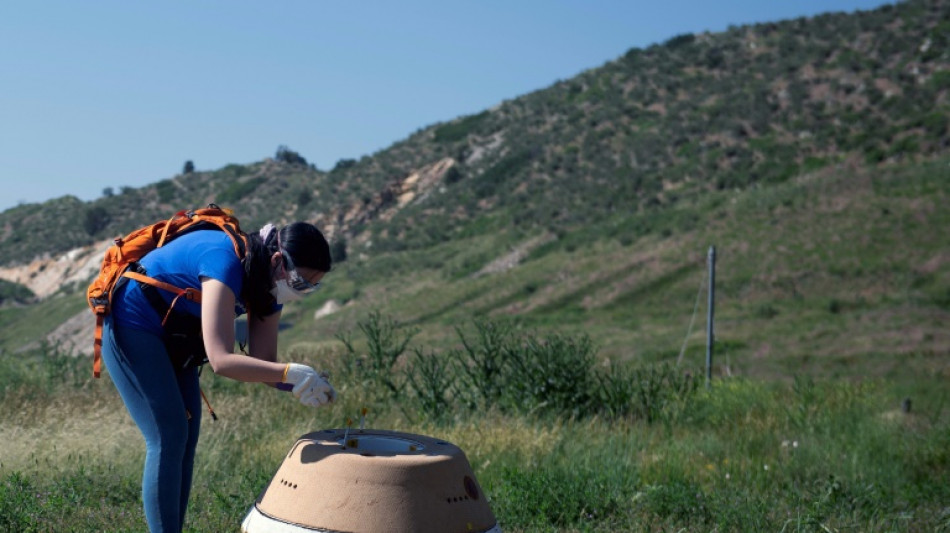
-
 From the Andes to Darfur: Colombians lured to Sudan's killing fields
From the Andes to Darfur: Colombians lured to Sudan's killing fields
-
Eagles win division as Commanders clash descends into brawl

-
 US again seizes oil tanker off coast of Venezuela
US again seizes oil tanker off coast of Venezuela
-
New Zealand 35-0, lead by 190, after racing through West Indies tail

-
 West Indies 420 all out to trail New Zealand by 155
West Indies 420 all out to trail New Zealand by 155
-
Arteta tells leaders Arsenal to 'learn' while winning

-
 Honour to match idol Ronaldo's Real Madrid calendar year goal record: Mbappe
Honour to match idol Ronaldo's Real Madrid calendar year goal record: Mbappe
-
Dupont helps Toulouse bounce back in Top 14 after turbulent week

-
 Mbappe matches Ronaldo record as Real Madrid beat Sevilla
Mbappe matches Ronaldo record as Real Madrid beat Sevilla
-
Gyokeres ends drought to gift Arsenal top spot for Christmas

-
 Arsenal stay top despite Man City win, Liverpool beat nine-man Spurs
Arsenal stay top despite Man City win, Liverpool beat nine-man Spurs
-
US intercepts oil tanker off coast of Venezuela

-
 PSG cruise past fifth-tier Fontenay in French Cup
PSG cruise past fifth-tier Fontenay in French Cup
-
Isak injury leaves Slot counting cost of Liverpool win at Spurs

-
 Juve beat Roma to close in on Serie A leaders Inter
Juve beat Roma to close in on Serie A leaders Inter
-
US intercepts oil tanker off coast of Venezuela: US media

-
 Haaland sends Man City top, Liverpool beat nine-man Spurs
Haaland sends Man City top, Liverpool beat nine-man Spurs
-
Epstein victims, lawmakers criticize partial release and redactions
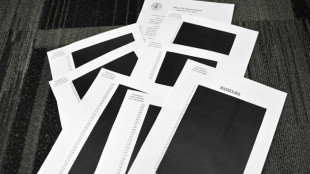
-
 Leverkusen beat Leipzig to move third in Bundesliga
Leverkusen beat Leipzig to move third in Bundesliga
-
Lakers guard Smart fined $35,000 for swearing at refs

-
 Liverpool sink nine-man Spurs but Isak limps off after rare goal
Liverpool sink nine-man Spurs but Isak limps off after rare goal
-
Guardiola urges Man City to 'improve' after dispatching West Ham

-
 Syria monitor says US strikes killed at least five IS members
Syria monitor says US strikes killed at least five IS members
-
Australia stops in silence for Bondi Beach shooting victims

-
 Olympic champion Joseph helps Perpignan to first Top 14 win despite red card
Olympic champion Joseph helps Perpignan to first Top 14 win despite red card
-
Zelensky says US mooted direct Ukraine-Russia talks on ending war

-
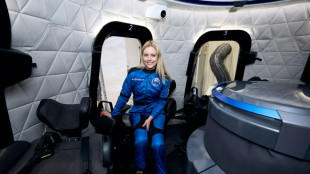 Wheelchair user flies into space, a first
Wheelchair user flies into space, a first
-
Brazil's Lula, Argentina's Milei clash over Venezuela at Mercosur summit

-
 Haaland sends Man City top, Chelsea fightback frustrates Newcastle
Haaland sends Man City top, Chelsea fightback frustrates Newcastle
-
Thailand on top at SEA Games clouded by border conflict

-
 Chelsea chaos not a distraction for Maresca
Chelsea chaos not a distraction for Maresca
-
Brazil's Lula asks EU to show 'courage' and sign Mercosur trade deal

-
 Africa Cup of Nations to be held every four years after 2028 edition
Africa Cup of Nations to be held every four years after 2028 edition
-
Zelensky says US mooted direct Ukraine-Russia talks on ending war in Miami

-
 Armed conflict in Venezuela would be 'humanitarian catastrophe': Lula
Armed conflict in Venezuela would be 'humanitarian catastrophe': Lula
-
Chelsea fightback in Newcastle draw eases pressure on Maresca

-
 FIFA Best XI 'a joke' rages Flick over Raphinha snub
FIFA Best XI 'a joke' rages Flick over Raphinha snub
-
Swiss Von Allmen pips Odermatt to Val Gardena downhill

-
 Vonn claims third podium of the season at Val d'Isere
Vonn claims third podium of the season at Val d'Isere
-
India drops Shubman Gill from T20 World Cup squad

-
 Tens of thousands attend funeral of killed Bangladesh student leader
Tens of thousands attend funeral of killed Bangladesh student leader
-
England 'flat' as Crawley admits Australia a better side
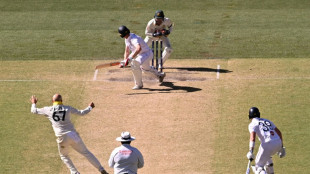
-
 Australia four wickets from Ashes glory as England cling on
Australia four wickets from Ashes glory as England cling on
-
Beetles block mining of Europe's biggest rare earths deposit
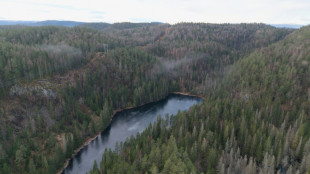
-
 French culture boss accused of mass drinks spiking to humiliate women
French culture boss accused of mass drinks spiking to humiliate women
-
Burning effigy, bamboo crafts at once-a-decade Hong Kong festival

-
 Joshua knocks out Paul to win Netflix boxing bout
Joshua knocks out Paul to win Netflix boxing bout
-
Dogged Hodge ton sees West Indies save follow-on against New Zealand
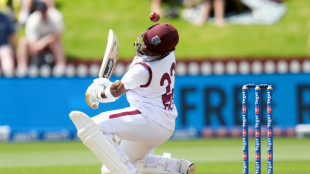
-
 England dig in as they chase a record 435 to keep Ashes alive
England dig in as they chase a record 435 to keep Ashes alive
-
Wembanyama 26-point bench cameo takes Spurs to Hawks win


NASA capsule bearing asteroid sample in imminent return to Earth
A seven-year space voyage comes to its climactic end Sunday when a NASA capsule lands in the desert in the US state of Utah, carrying to Earth the largest asteroid samples ever collected.
Scientists have high hopes for the sample, saying it will provide a better understanding of the formation of our solar system and how Earth became habitable.
The Osiris-Rex probe's final, fiery descent through Earth's atmosphere will be perilous, but the US space agency is hoping for a soft landing, around 9:00am local (15H00 GMT), in a military test range in northwestern Utah.
Four years after its 2016 launch, the probe landed on the asteroid Bennu and collected roughly nine ounces (250 grams) of dust from its rocky surface.
Even that small amount, NASA says, should "help us better understand the types of asteroids that could threaten Earth" and cast light "on the earliest history of our solar system," NASA Administrator Bill Nelson said.
"This sample return is really historic," NASA scientist Amy Simon told AFP. "This is going to be the biggest sample we've brought back since the Apollo moon rocks" were returned to Earth.
But the capsule's return will require "a dangerous maneuver," she acknowledged.
Osiris-Rex released the capsule early Sunday -- from an altitude of more than 67,000 miles (108,000 kilometers) -- some four hours before it lands.
The fiery passage through the atmosphere will come only in the last 13 minutes, as the capsule hurtles downward at a speed of more than 27,000 miles per hour, with temperatures of up to 5,000 Fahrenheit (2,760 Celsius).
Its rapid descent, monitored by army sensors, will be slowed by two successive parachutes. Should they fail to deploy correctly, a "hard landing" would follow.
If it had appeared that the target zone (37 miles by 9 miles) might be missed, NASA controllers could decide at the last moment not to release the capsule.
But all systems are go, as NASA's Planetary Science Division posted on X, formerly Twitter, that Osiris-Rex released the capsule with the asteroid sample at 1042 GMT.
"The capsule will plummet through space for four hours, enter the atmosphere over California and land about 13 minutes later in Utah," it said.
The probe, having successfully released its cargo, fired its engines and shifted course away from Earth, NASA said, "on its way" for a date with another asteroid, known as Apophis.
Scientists predict it will come within 20,000 miles of Earth in 2029.
- Japanese samples -
Once the tire-sized capsule touches down in Utah, a team in protective masks and gloves will place it in a net to be airlifted by helicopter to a temporary "clean room" nearby.
NASA wants this done quickly and carefully to avoid any contamination of the sample with desert sands, skewing test results.
On Monday the sample is to be flown by plane to NASA's Johnson Space Center in Houston. There, the box will be opened in another "clean room."
NASA plans to announce its first results at a news conference October 11.
Most of the sample will be conserved for study by future generations. Roughly one-fourth will be immediately used in experiments, and a small amount will be sent to mission partners Japan and Canada.
Japan had earlier given NASA a few grains from asteroid Ryugu, after bringing 0.2 ounces of dust to Earth in 2020 during the Hayabusa-2 mission. Ten years before, it had brought back a microscopic quantity from another asteroid.
But the sample from Bennu is much larger, allowing for significantly more testing, Simon said.
- Earth's origin story -
Asteroids are composed of the original materials of the solar system, dating back some 4.5 billion years, and have remained relatively intact.
They "can give us clues about how the solar system formed and evolved," said Osiris-Rex program executive Melissa Morris.
"It's our own origin story."
By striking Earth's surface, "we do believe asteroids and comets delivered organic material, potentially water, that helped life flourish here on Earth," Simon said.
Scientists believe Bennu, about 500 meters (1,640 feet) in diameter, is rich in carbon -- a building block of life on Earth -- and contains water molecules locked in minerals.
Bennu surprised scientists in 2020 when the probe, during its brief contact with the asteroid's surface, sank into the soil, revealing an unexpectedly low density, like a children's pool filled with plastic balls.
Understanding its composition could come in handy in the -- distant -- future.
For there is a slight, but non-zero, chance (one in 2,700) that Bennu could collide catastrophically with Earth, though not until 2182.
But NASA last year successfully deviated the course of an asteroid by crashing a probe into it in a test, and it might at some point need to repeat that exercise -- but with much higher stakes.
J.Oliveira--AMWN



